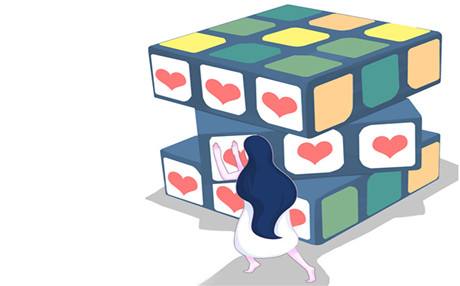
Do people’s personalities change with age?
Advertisement
From childhood to adulthood, you will go through a series of changes -- work, regretful hairstyles, on-again, relationships with break-ups and reconciliations. But what about your inner world? Does your personality change as you get older?

Character is a person’s unique feature of thoughts, feelings, and actions. People tend to think of character as stable. Psychologists disagree. “Character is a growth phenomenon. It’s not a constant thing that goes along for life and can’t be changed, “said Brent Roberts, a psychologist at the University of Illinois.
But that does not mean you wake up to a different person every day. In short, Roberts told Live Science, change can be nearly imperceptible. Longitudinal studies of personality suggest that our personalities are actually stable in the short term.
In a 2000 study published in the “Psychological Bulletin”, researchers analysed the results of 152 longitudinal personality studies in which participants ranged in age from childhood to their early 70s. All the studies measured trends in the big five personality traits. These features, including extroversion, pleasing characters, conscientiousness, openness to experience, and neuroticism, are all essential components of personality research. The researchers found that everyone’s level of personality features tended to be consistent over every 10 years, compared with other participants.
Advertisement
Brent Donnellan, a psychology professor at Michigan State University, says the consistent pattern starts from age 3, and maybe even earlier. When psychologists study children’s characters, they do not study it the same as the way they study adults. Instead, they look at temperament, which is how strongly a person responds to the outside world. We all came into the world with unique temperaments. Research suggests that our childhood temperaments-whether we are easy-going or irritable, for example, desiring for contact with strangers or more resisting-match those of adulthood. “There’s a big difference in behaviour between a shy 3-year-old and a shy 20-something, but both have an underlying core,” Donnellan told Live Science.
Early temper also seems to influence later life experiences. For example, a 1995 study published in the journal “Child Developmental Psychology” followed children from age 3 to age 18. They found that children who were shyer and more silent tended to grow up to be unhappy teenagers.
Advertisement
- Previous article
- The largest mammoth fossil has been discovered in Mexico
- Next article
- Is coffee good or bad for your health
Advertisement
OTHER NEWS

Alan Turing: Stolen Relics to be Returned After 36 Years
BY Jose

Flipkart and Amazon Will Face Fierce Competition from JioMart
BY Shawn

Archaeological Discovery: Syphilis Existed in Europe Before Columbus
BY Jeffrey

Southeast Asian ride-hailing giant Grab
BY Elizabeth

Rare Disease: A Beautiful Girl Loses Her Memory Every Day
BY Andrea

How to Download and Install Wyze App for Free?
BY Gray
RECENT NEWS
-

PUBG Mobile Esports Generated 200 Million Hours of Viewing in 2020
-

Mario Kart Tour Races to $200M revenue and 200M Downloads
-

Game Acquisitions Expand Globally in Q1 2021 with 280 Deals Worth $39 Billion Surpassing That in 2020
-

Free Fire Shows Strong Momentum, with Its Revenue Overtaking PUBG Mobile in a Single Market for Q1 2021
-

The Games Fund Launched a $50 Million Early Investment Fund to Invest in American and European Companies
-

How to Download and Install Wyze App for Free?
 1
1 1
1